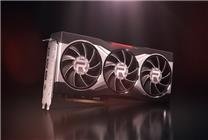AMD Ryzen 9950X Processors Encounter Overheating Issues During GMP Tests
Introduction
In an alarming revelation for tech enthusiasts and professionals alike, the open-source computing library, GNU Multiple Precision Arithmetic Library (GMP), reported that two AMD Ryzen 9950X processors suffered thermal damage during intense mathematical computations. This situation raises serious concerns regarding the performance and potential overheating issues of the Ryzen 9950X processors under demanding workloads.
The Incident
According to GMP’s announcement on August 29, the first incident of a burned Ryzen 9950X processor occurred in February, with a replacement unit also failing in August. Both processors were tested under prolonged, high-intensity loads aimed at assessing their computational capabilities. The team at GMP noted signs of significant thermal damage, including discoloration around the CPU and its cooling components, indicating extreme operating conditions.
Possible Cause of Damage
GMP suspects that the Zen 5 architecture may exceed its power specifications during specific instruction cycles, particularly the MULX instruction, which could contribute to overheating. Due to the nature of GMP’s tests, which demand high computational resources, there is a hypothesis that the Ryzen 9950X may require better cooling solutions to handle such intensive workloads.
Manufacturer Response
In light of these incidents, AMD has actively engaged with GMP to investigate the circumstances surrounding the failures. An AMD spokesperson acknowledged the situation and emphasized that it is essential to conduct a thorough inquiry before jumping to any conclusions about the root cause of the failures. The allegations are distinct from previously reported issues concerning ASRock motherboards, as these tests were conducted using an Asus motherboard.
Engineering Adjustments
Torbjörn Granlund, the creator of the GMP project, shared insights about the ongoing troubleshooting process. He noted the importance of optimizing both the hardware setup and environmental factors. Despite the ambient temperature being within the normal range, Granlund mentioned that the chassis did not provide adequate ventilation, and the existing radiator’s specifications were insufficient. To mitigate future risks, he plans to upgrade to a larger radiator and improve the overall chassis design, as well as implement a CPU temperature monitoring script to detect overheating promptly.
Recommendations for Users
GMP strongly advises users to exercise caution when running high-intensity tests on any Zen 5 processors for extended periods until the investigation yields clearer insights into the causes of the damage. Users are encouraged to ensure their systems have appropriate cooling solutions in place to prevent potential overheating and to closely monitor CPU temperatures during demanding tasks.
Conclusion
As the inquiry into these incidents continues, the concerns raised by GMP highlight the need for greater awareness around hardware capabilities, particularly when subjected to high-performance computing demands. Users and developers alike should remain vigilant and proactive in ensuring their systems are equipped to handle intense workloads without risking hardware failure. Maintaining optimal thermal conditions and following best practices in system design can help safeguard processors like the AMD Ryzen 9950X against similar issues in the future.







